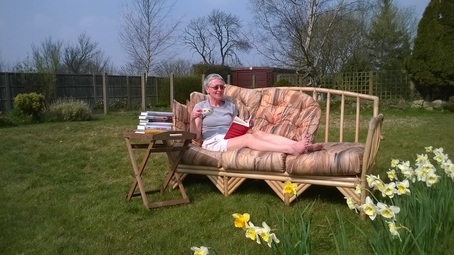
HER reviews
| annethology |
|
I started this blog in 2013 to share my reflections on reading, writing and psychology, along with my journey to become a published novelist. I soon graduated to about twenty book reviews a month and a weekly 99-word story. Ten years later, I've transferred my writing / publication updates to my new website but will continue here with occasional reviews and flash fiction pieces, and maybe the odd personal post.
 I’ve been asked twice now about my approach to reading for reviews and, grateful for that interest, I’ve given it a little more serious thought. Coincidentally, after almost a year of regular book blogging, I’m probably in need of some kind of policy; until I develop something more formal, this post will have to stand for that. While it might appear somewhat back to front, it makes more sense to me to begin by outlining what I’m trying to achieve followed by how I go about it. Your feedback, as ever, would be much appreciated. HER reviews
19 Comments
 When Charli Mills posted her flash fiction prompt at the end of last week to write a 99-word story that includes a vice, I thought it would be easy. Isn’t a vice just another notch along a continuum that leads from quirky through the compulsory character flaws to the evil villains we love to hate? But I’ve struggled. I didn’t have a character waiting in the wings of my to-be-reviewed and to-be-read piles I could pounce on or, at least, not one I could persuade to perform. Kicking off with a conversation about marijuana, I expected Charli’s post to ignite a galaxy of ideas. Yet we know, even if vicariously, it’s a drug that tends to lull the senses. Even though I have a dope-smoking narrator in my possibly-second novel, Underneath, it’s a minor transgression relative to what else he gets up to, put there to give him something to do with his hands while he’s waiting for his girlfriend to come back to bed. And although there’s a drug dealer in Lisa McInerney’s audacious debut, and I’ve mentioned crack in the heading of my review, I’m not sure it’s entirely accurate (all these different names for drugs do confuse me) but there is purely for the alliteration. Fact is, I’m not terribly interested in mood-altering substances, whether legal or otherwise, and it took me a little longer than I might have expected to lose myself in Tim Winton’s magnificent Eyrie because it kicks off with the hangover from hell. 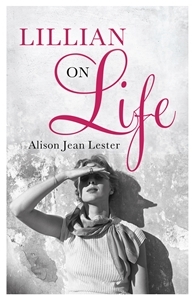 Novels of character often address the question of how our experiences define us. In The Lives of Women, Elaine was shaped by the tragedy that brought her childhood to an abrupt end. Lillian, another middle-aged woman subjecting her life to an unflinching review, sees herself through a succession of lovers and, to a lesser extent, her parents’ marriage and the constraints or otherwise of social class. Living through the postwar decades of change in Missouri, Munich, Paris, London and New York, Lillian presents at first as witty and unconventional, as bold and independent as a single woman can be in a world where the apotheosis of achievement is to work as PA to the (male) head of the organisation (and never mind too much about what the business of that organisation might be). In her late 50s, Lillian refuses to be held back by the embarrassments of her ageing body; all she needs is a pot of KY Jelly strategically placed at the bedside and she can continue to welcome her married lover into her home. She might have been a late starter sexually, but she soon caught up, learning how to adapt herself to a man’s desires, “pretending not to notice … [being] the key to so much” (p142). Even as she acknowledges her disappointments, she has no room for self-pity (p152): 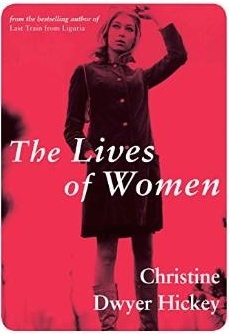 Following the death of her mother, Elaine returns to her childhood home to care for her disabled father and aged dog after an absence of over thirty years. Her feelings are at best ambivalent (p10): He arrives to heel, an old dog again, half-blind and utterly exhausted, then he folds himself down on the ground and looks at me sideways, as if ashamed of his own frailty. And I find myself wondering which I will be left with in the end, the dog or my father, then try not to think which one I’d prefer. The enclave of absent men and frustrated women, the suburban homes hide their quiet violence beneath a mask of respectability (p40): Some detached, some semi-detached. Redbrick to steep roof. Some gardens bigger than others. Apron of lawn front and back; elbows of lawn at the sides of a detached house. A driveway. Square pillars, double gate. A hedge to the front: not so high that the house could hide behind it, but not so low that a child could climb up and hurt itself – or, worse, ruin the line of the hedge. 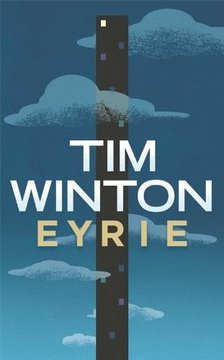 Tom Keely has come down in the world. Two years ago he lost his marriage; a year ago his job as the public face of an environmental NGO, martyring himself as a whistleblower for a lost cause. Sealing himself off from former friends and colleagues in the sweltering heat of his apartment, waking up with a hangover from hell and a disturbing damp patch on the sitting-room carpet, the only “up” in his life seems to be the view over Fremantle, Western Australia, from his tenth floor balcony. Mired in the wreckage of his life, Tom steers clear of the neighbours. But Gemma Buck, living alone with her six-year-old grandson, Kai, working nights stacking shelves in the supermarket, is persistent. After all, she recognises him from their childhood on Blackboy Crescent, where Tom’s dad, Neville, was the only adult who tried to calm her violent father, Tom’s parents subsequently taking in Gemma and her sister when their mother was hospitalised and their father imprisoned. Outside self-publishing, it’s rare for writers to have a say in the covers adorning their books. Even, I’m told, authors whose profits match the GDP of a small nation have to take what they’re given. On the one hand, it makes sense to leave it to the experts. On the other hand, I’d hate to have to tout around a book with a cover that didn't fit. (And some can be ugly – just have a browse through my reviews.) Fortunately, for my novelistic debut, I’ve landed myself a publisher who endeavours to put authors at the centre of the process. Much as I loved the spoof cover kindly created for me by writer and traveller, Lori Schafer showing a couple of snails making their way across a landscape of granulated sugar, I’ve been itching to share the real thing. I hope you can see why. My thanks to Vince Haig for creating such a beautiful package for my words. After lots of back and forth, including a panic from me when I realised I’d totally misrepresented it, we’ve also finalised the blurb:
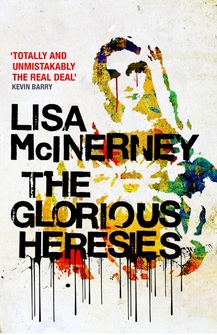 Ah for feck’s sake altogether. Another religious mother. You’d have to ask yourself what’s wrong with this country at all that it can’t stop birthing virtuous ould bags. We know about the darkness of Catholic Ireland here on Annecdotal from our discussion of John Boyne’s dissection of cover-ups in the priesthood in his novel, A History of Loneliness, last year. But interestingly, rampant paedophilia is the one vice Lisa McInerney doesn’t address in her audacious debut novel exploring the murky underbelly of Ireland’s post-crash society. The Glorious Heresies kicks off with a murder in the ground floor apartment of the decommissioned brothel in which the gangster, Jimmy Phelan, has installed his long-lost mother. But this is no police procedural – the reader knows early on whodunnit to whom – but the murder of Robbie O’Donovan is the device through which Lisa McInerney weaves the lives of her misfit characters over the ensuing five years. 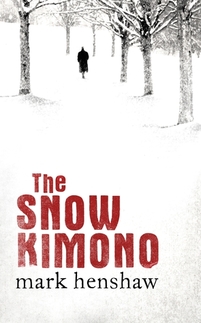 A retired French police inspector receives a letter from a woman claiming to be his daughter. A Japanese law professor is thrilled when the little girl he lives with addresses him as Father; how can he tell her that her real father is in jail? A self-centred writer who steals, not just others’ stories, but their entire identities. A father travels from the mountains to leave his daughter in the city as a rich man’s concubine. A double, or triple, agent in the Algerian independence movement, who is even prepared to deceive his wife. The perfect ingredients of a short story collection? No, this is a novel. It’s a novel composed of stories within stories within stories, like matryoshka dolls, as Tadashi Omura collars Auguste Jovert to offload the tale of his adopted daughter and his increasingly unreliable friend, Katsuo. Yet, unlike those Russian dolls, the stories don’t fit neatly one inside the other as we jump back and forth between France, Algeria and Japan, moving in time across four decades at the end of the last century. Nor, although well written, are they sufficiently distinct in style or genre, like David Mitchell’s Cloud Atlas, to astound us with their brilliant audacity. And while the novel provides a rationale for the structure in terms of the Japanese saying: If you want to see your life, you have to see through the eyes of another  I’ve recently dispatched the acknowledgements page to my publisher for my forthcoming novel, Sugar and Snails, in which I’m intending to thank my therapist. Given that I've decided not to name her, to protect the boundaries of our relationship, there might seem little point. Yet I couldn’t exclude someone who, despite not having read a word of the text, has made a significant contribution to the novel by safeguarding my sanity through the long process of writing and preparing for publication. Nevertheless, I do have some anxieties about flag-waving this contribution so blatantly, when it is my impression that the writing world is, at best, ambivalent and, at worst, hostile towards psychotherapy. It’s well over a year since a book of psychoanalytic case studies made the longlist for the Guardian first book award (even if, sadly, it didn’t progress any further). Stephen Grosz's The Examined Life reads like a short story collection, with lots to satisfy those attracted to serious fiction. Yet, only the week before the longlist was published, the same newspaper featured Charlotte Mendelson’s contribution to the Twitter fiction challenge, a neat cameo that works on the premise that therapy takes away one’s well-being. It seems a shame that many writers should share society’s unease about therapy when there’s so much overlap between the two endeavours. 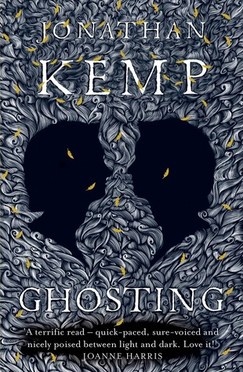 She knows it’s futile to try to explain what’s going on inside her – she can’t even explain it to herself – so she makes no more reference to it, focusing instead on giving the best impression of herself she can. One of the most painful aspects of mental distress and disorder can be the inability of other people to acknowledge the lived experience, the need to cover up for their sake an additional strain on an already fragile psyche. So no wonder Grace is relieved when her husband, Gordon, leaves her alone on their narrow-boat home to go on a fishing trip with a friend. A couple of days earlier Grace saw what she took to be the ghost of her deceased first husband, Pete, her deepest and most disturbing love. Gordon, fearing a repeat of the breakdown that had her hospitalised following the death of her teenage daughter, Hannah, wants her to go to the doctor. Grace herself just wants time to revisit the memories of the handsome man who used to beat her, and the daughter who withdrew into the solace of illegal highs. 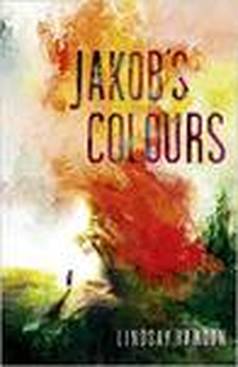 See the colours, Jakob. See them. The sun drops lower, sinks like hot metal spoon over the horizon, streaks of vermillion cutting across the skies. And then, and only then, as the first stars began to shine do the thousands upon thousands of crocuses begin to open their petals and bloom. By morning the desert floor is carpeted in a sea of blue, mallow in the shadows, violet in the light. Yavy mixes paints to sell to the artists at the market. Years later, he tells his son, Jakob, to identify the colours as he runs through the alien landscape to distract him from his fear. Later still, Yavy’s wife, Lor, tells seven-year-old Jakob and his younger brother and sister a story about a family riding on horseback, outwitting the evil Ushalin with their cunning and speed. On the way, they fill their seven vessels with the seven colours of the rainbow, their vibrancy finally defeating the Walls of Monochrome. It might seem like a fairy story, but the stakes couldn’t be higher: the Nazi Office of Racial Hygiene considers them vermin and wants them dead. 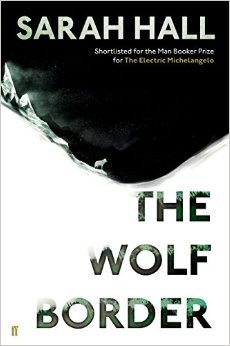 When invited to lead a controversial project reintroducing the grey wolf as a natural predator into the English countryside, Rachel Caine initially declines. She is happy keeping her native Cumbria at a distance, happy heading up the team monitoring wolves in the true wilderness of Nez Perce, Idaho. But, when her mother dies and a drunken night with one of her colleagues takes the relationship too far, she decides to accept the Earl of Annerdale’s offer. The new job, while geographically on a smaller scale, heralds new challenges for Rachel as she grapples with the manners and politics of the country set while confronting the memories of a difficult mother-daughter relationship evoked by the landscape that formed her. The Wolf Border explores the territory bounded by country-house fiction, the natural world, capitalist politics and impending motherhood with some of the finest writing on human and elemental wilderness, for example in an Idaho winter (p68): 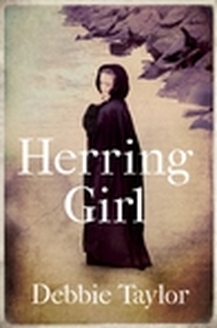 Dr Mary Charlton is “a fully qualified Jungian therapist, with a doctorate in neuropsychology and over twenty-five years’ experience in the NHS and private practice” (p39) who also claims to have worked as a clinical psychologist (p246), an unlikely combination to my mind but, knowing little about either Jung or neuropsychology, I’d better leave her to it. But she does highlight two areas not much addressed in this series on fictional therapists that merit a closer look. While previous fictional therapists, such as Gabrielle Fox, Max Fisher and Tom Seymour, have worked with children, Mary Charlton is the first I’ve encountered doing so outside a team setting. Twelve-year-old Ben Dixon finds his way to her on the recommendation of a friend, who is also a former client (I know, boundary violation alert). Although Mary knows that she can’t work with Ben without parental consent, her willingness to take him into her office and let him talk about his difficulties before this is forthcoming and, later, to spend time with him outside her consulting room when the boy’s father has expressly forbidden it puts her on ethical dodgy ground. 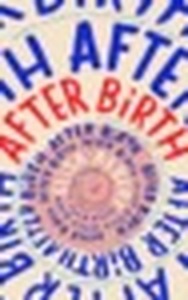 I think I, ah, sort of lost my mind this year? Ha ha ha ha ha. Ha ha ha ha ha ha! Yeah, he says finally. I think a lot of women go through that. What, abandon their dissertations? Lose their minds. Having a kid. It’s a year now since Walker was born, and Ari is still struggling. Most days, the baby goes to a childminder so she can go through the motions of working on her dissertation, about how feminist organisations implode (p46) and even her supervisor is beginning to see through the façade (p22): There’s a curt email from Marianne about the dissertation. How is the thinking coming? … Does Marianne actually think I’m working on my dissertation? Does she think I give a flying fuck about my dissertation? It’s all I can do to bathe occasionally, keep the house reasonably tidy, feed us, launder, get some sleep … |
entertaining fiction about identity, mental health and social justice
Annecdotal is where real life brushes up against the fictional.
Annecdotist is the blogging persona of Anne Goodwin:
reader, writer, slug-slayer, tramper of moors, recovering psychologist, struggling soprano, author of three fiction books. LATEST POSTS HERE
I don't post to a schedule, but average around ten reviews a month (see here for an alphabetical list), some linked to a weekly flash fiction, plus posts on my WIPs and published books. Your comments are welcome any time any where. Get new posts direct to your inbox ...
or click here …
Popular posts
Categories/Tags
All
Archives
March 2024
BLOGGING COMMUNITIES
|